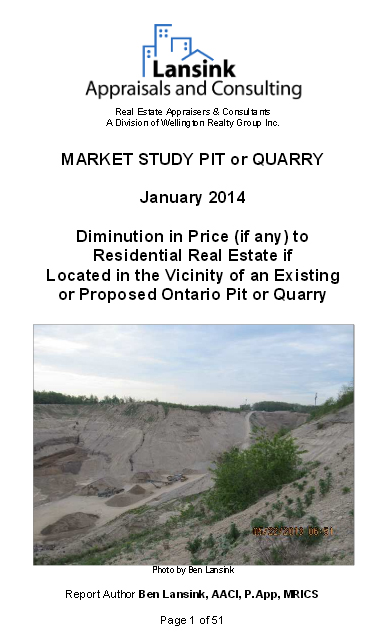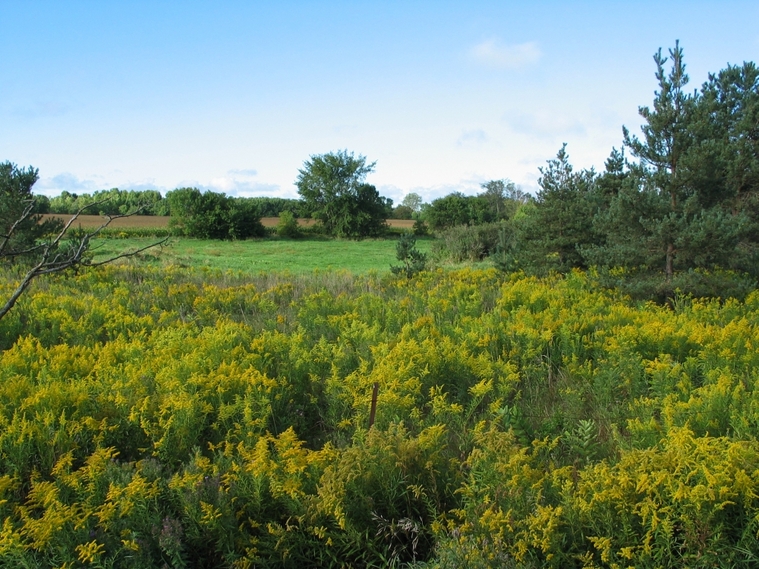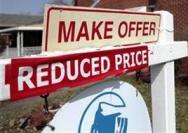PitSense is a community of people organized to respond to proposals for further increases in the number of aggregate operations in Caledon.
We are opposed to the continuing 'Domino Effect' growth of open pit mines and quarries in the agricultural and rural residential areas of the Niagara Escarpment and UNESCO World Biosphere Reserve.
"... a proponent of development has the onus of demonstrating no negative impact. Objectors to a development need not demonstrate that there will be negative impact."
..... SUSAN B. CAMPBELL, VICE CHAIR, Ontario Municipal Board, Rockfort Quarry ruling
PitSense is dedicated to bringing common sense to the relationship between aggregate industries and property owners affected by proposed and active pits and quarries in their communities
Copyright © 2010-2024 PitSense Niagara Escarpment Group Inc.
All rights reserved
---------------------------------------------------------------------------------------------------------------------------
ISSUE: Making ENVIRONMENTAL and ECONOMIC SENSE
Environmental Sense:
Fact: Many pockets of gravel aggregates were left behind by the same ancient glaciers that make the Greenbelt/ Niagara Escarpment/ Oak Ridges Moraine one of the major sources of water for the Greater Toronto Area and Great Lakes.
Fact: Ground source water is not a very well-understood resource. Where it comes from, where it goes, how it can become disturbed and contaminated is highly speculative.
Fact: Gravel Pits and Stone Quarries can dig a hundred feet or more into the earth – and many stories below the water table! – potentially releasing harmful earth minerals and contaminants and risking leaching into ground source water aquifers.
Fact: Noise pollution from potentially hundreds of trucks per hour, noise from mining equipment such as rock crushers and excavation equipment can travel for many miles.
Fact: Dust and fine particulate pollution from gravel trucks and stationary mine operations can travel for many miles.
Economic Sense:
Fact: Studies have shown that Property Tax Assessment/ Land values can drop
by as much as 30% in the vicinity of a pit or quarry, beginning as soon as the
application for a permit is announced. Profit-seeking corporate pit and quarry
owners should be willing to compensate home owners for the drop in their property values
due to the announcement/operation of their pit. One way this can occur is
through Full Cost Accounting and Financial Assurance Agreements. If the
profitability of a proposed mining operation is insufficient to provide such assurances
and compensation, then it is NOT economically viable and should not be permitted to proceed.
Fact: Even if you are not in the immediate affected area, your property tax may suffer an increase to cover the shortfall if the municipality is hit with reduced revenues from reduced assessment values of properties in the pit area. Pit operators should accept the principle that these costs should be borne by them, not the neighbouring property owners and municipal taxpayers.
Fact: Once a pit or quarry is approved, roads - and other infrastructure - may need significant improvement to handle heavy trucks. These costs currently impact ALL municipal property owners/taxpayers.
PitSense is working to ensure that new gravel pits make both environmental and economic sense for everyone. To do that we are calling for new policies that would require aggregate operators to do Full Cost Accounting when evaluating the economic viability of a proposed operation. Full Cost Accounting means: accounting that recognizes ALL economic, environmental, health, and social costs of an action or decision. This includes negative impacts on property values and municipal revenues. Aggregate operations are not a public service, they are private, for-profit businesses. Local residents and municipalities should no longer be forced to financially subsidize these businesses so they can make huge profits. We recognize that gravel is an important resource for infrastructure development, construction, and to some extent for job creation. We believe that Aggregate operations should not be conducted at a NET COST to society; they should provide a NET BENEFIT once all environmental and economic costs are calculated.
"We cannot continue to do business thinking we are adding value to shareholders while at the same time destroying value for stakeholders," Sukhdev said. "This is bad management."
... Pavan Sukhdev speaking at RIO+20 conference. See Reuters article HERE
More evidence that the concepts of 'Full Cost Accounting', 'Full Cost Recovery', 'Natural Capital' and 'Financial Assurance Agreements' are fast becoming universally recognized by governments and the corporate sector.
How can you help? All levels of government need to understand that this is an important issue to ALL of us, regardless of where we live. PitSense began with approximately 180 supporters. We, the unpaid founders of the group, need to know that you care and that we have your support to take this issue further. Please share your experiences with us. If you can volunteer any time to organize events, collect names of interested persons, or other necessary tasks, please contact us. Or consider making a financial contribution using the 'Donate' button to the right. We will need specialists such as lawyers and environmental experts to help express our concerns and quantify costs. We would like to align ourselves with other affected parties and groups so that a consistent, well-thought-out message is conveyed to governments through us and through you, the taxpayers and voters.
PLEASE JOIN US.
P R O P E R T Y V A L U E S
Background of the PitSense Property Value Initiative
In February 2010 when the first application for the McCormick Pit was announced, a number of residents in the community became active in opposition to the continued expansion of pits in the area. Our research showed that, historically, most pit and quarry applications were successful. Applicants were experienced in dealing with concerns about water, air pollution, noise, safety, appearance, etc. but had never had to deal seriously with Social Impacts such as property value diminution in areas around their sites. They were, and most still are, in a state of denial.
About the same time we became aware of the concept of ‘Full Cost Accounting’ (FCA).
We concluded that in order to make valid decisions regarding the exploitation of natural resources, like aggregates, ALL costs should be factored into all proposals and business plans. Aggregate mining/extraction is fundamentally a profit-seeking business venture, with huge financial gains to the operators. It is apparent that the profitability of such operations is being, in effect, subsidized by the losses imposed on neighbours in the form of injurious affection (property value diminution), and on municipalities in the form of infrastructure maintenance (costs which are borne by taxpayers).
Our fundamental position is that a business such as aggregate extraction should only be established so long as ALL external costs are identified, and compensated for, by the operators. If the profitability of a proposed mining operation is insufficient to provide such assurances and compensation, then it is NOT economically viable and would not proceed.
So the question is, how do we transition from the current situation to one of ‘Full Cost Accounting’ (FCA) and compensation for external costs resulting from aggregate operations?
The first step PitSense took was to approach the Municipal Property Assessment Corporation (MPAC) since they are the agency with the greatest experience in the field. PitSense made a submission to MPAC in December 2011. They agreed to investigate the development of a formula to be applied to properties in proximity to pits and quarries, similar to formulae presently applied in cases of proximity to highways, railroads, airports, landfills, etc..
In a letter to PitSense dated October 11, 2012 MPAC acknowledged that diminution occurs and implemented adjustments to assessments of residential properties that abut an active or proposed gravel pit for the 2012 Assessment Update. A similar but smaller adjustment was applied to residential properties that do not abut but are within one kilometre of an active or proposed gravel pit. Additionally, they agreed to continue reviewing assessments on properties in proximity to pits and quarries.
There continues to be mounting evidence of the extent and magnitude of the property value losses. We not only refer you to our submission to MPAC but also to studies such as the Erickcek Report which is cited in the C4SE Report (a study done by The Centre For Spatial Economics for the Town of Caledon in which the negative economic impacts on property values are extensively discussed), and a recent study from independent appraiser Ben Lansink that focuses on examples in Ontario.
Now we ask: should the municipal property tax revenues lost due to reduced MPAC assessments result in tax increases for people who are not in proximity to pits? PitSense doesn’t think so, but rather that it is the responsibility of the party profiting from the venture, in this case the pit owner/operator, and should be incorporated into the cost of the product. Municipalities need to take a position that would not impose added costs upon other non-affected taxpayers. We propose to present a case to the provincial government to have the legislation or regulations altered to implement a requirement that all license applications should include measures to identify, quantify and compensate for injurious affection to neighbouring properties. There are a variety of mechanisms available to accomplish this, one of which is a ‘Property Value Guarantee’ [PVG]. Others are outright purchase, financial assurance agreements, other contingency funds, or agreed-upon lump sum payments.
In February 2010 Lehigh Inland Cement Limited was applying for a license to extract aggregate in Bearspaw Alberta, northwest of the City of Calgary and east of the Town of Cochrane. It is a rural community within Rocky View County consisting mostly of country residential acreages. As such it is similar in many ways to Rural Caledon.
In an attempt to quell concerns about property values decreasing as a result of the proposed gravel pit operation, Inland said it would offer property value indemnity to homeowners living directly across from the pit. If property owners took the initiative, their homes would somehow be appraised at fair market value as if the pit did not exist. And if a resident received offers below fair market value, Inland promised to top up offers or buy the home outright.
As it turns out, the application was defeated by the local Council, but we are hopeful that this is an early example of an aggregate company recognizing that their operations do have serious adverse economic impacts by offering some compensation to nearby property owners. Subsequently we received a report from a Bearspaw resident who describes the inadequacy of the compensation terms and renewed efforts by the aggregate operators to carry on regardless of the residents' objections. We remain hopeful that talk of compensation, however inadequate, is a small step in the right direction.
January, 2014 - Appraiser Ben Lansink publishes Property Value study in southern Ontario that finds property value losses between 8% to 40% in proximity to pits and quarries.
Read full report HERE
ALSO ... please visit our 'Position Paper' page HEREto read more about Property Values and other current issues.
- January 26, 2021 - Caledon resident T. Sevelka published a report documenting the negative effect proximity to a quarry has on the value of neighbouring properties. His analysis is thorough and professional. To read the full report click HERE







